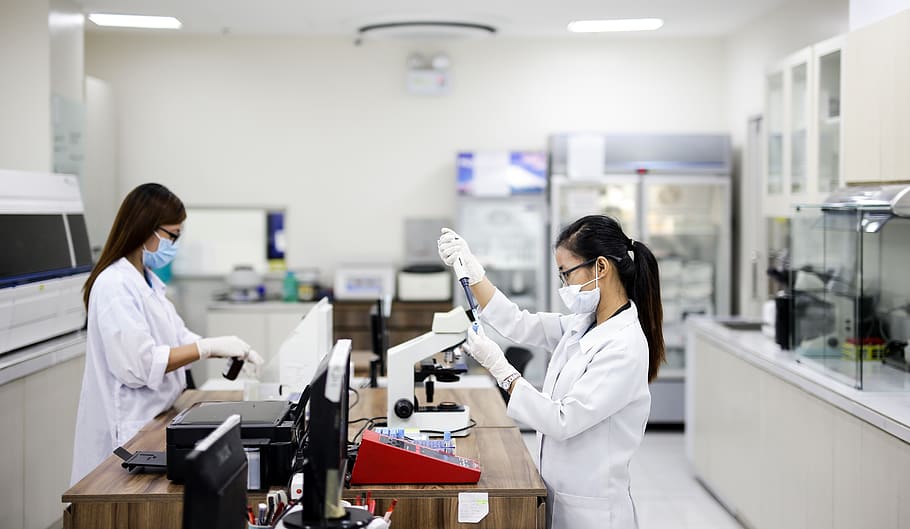After days of speculation, Anneliese Dodds has been announced as John McDonnell’s successor in the role of Shadow Chancellor. She had previously served as a Shadow Treasury Minister since 2017 has served as MP for Oxford East since 2017.
Since Starmer’s widely anticipated victory on Saturday, the new Labour leader has been appointing figures from across the party to Shadow Cabinet positions. Like many of Starmer’s appointees, Dodds has little name recognition and supported Starmer in the leadership election. Before entering Parliament, Dodds was an MEP and public policy academic.
Dodds could be a big hint about where Starmer will take the party. In his Ten Pledges, Starmer promised to continue much of Labour’s economic policy, including support for public ownership of rail, mail and water, increasing income tax for high-earners and establishing a Green New Deal. For many, the appointment of Dodds will be of particular interest, especially as it is not immediately clear how she will perform.
A common pattern amongst Dodds’ public appearances is her self-proclaimed zeal for tax reform. In Parliament, she has a solid record on tax policy, voting against raising the income tax threshold and voting for higher taxes on banks. She also voted for tighter regulation of banks during her time as an MEP.
She believes that measures undertaken by the Conservatives over the last decade, including cutting corporation tax to 19%, have failed most working people in the UK, and that “those with the broadest shoulders should bear the larger weight”. Insisting that tax cuts brought in since the financial crisis have not heralded “some kind of economic renaissance”, Dodds believes that many of the reforms brought in by successive Tory governments have done little more than make the wealthy wealthier. Dodds broadly supported the tax proposals put forward in the 2019 manifesto, including raising corporation tax to 26%.
Dodds also supports measures like making the Office for Budget Responsibility accountable to Parliament instead of government and expanding its remit to observation of Labour’s Fiscal Credibility rules. These measures would increase Parliamentary scrutiny over the government’s spending decisions and would decrease the power of the Chancellor and Prime Minister over the budget.
However, more critically she has spoken about a need for longer-term thinking surrounding fiscal sustainability, an issue that divided the fiscal policy of Corbyn and Milliband, speaking about the OBR she stated “we need a far greater focus on our long-term productivity problems” indicating her wanting to retain Corbynista economic policies that were designed to boost the economy at large rather than simply manage the public purse without understanding the impacts of fiscal policy on wider economics.
In terms of public spending, Dodds will most likely continue McDonnell’s fervent opposition to austerity. In an article written the week of Rishi Sunak’s first budget, Dodds criticised the Chancellor’s failure to commit to matching the £54 billion required to return public spending to 2009-10 levels. Calling it “a sticking plaster”, she is also scathing of the government’s infrastructure spending pledges, noting they will not make up for the lack of investment over the last ten years.
Dodds has also been critical of austerity economics in other countries; in 2015, she argued that the EU’s enforcement of austerity measures on Greece would lead to sizable political and economic repercussions.
According to a 2011 paper she wrote for the Journal of Poverty and Social Justice, Dodds favours a “bottom-up” approach to public spending that relates to people as individuals and treats people who have experienced poverty and social exclusion as experts. Her economics are in line with Labour’s new anti-austerity ideology which should help Labour from falling into the trap of running on austerity-lite economics as it did in 2015.
In terms of spending, a lot of Dodds’ potential behaviour as Chancellor can be ascertained by what she does and does not support. Dodds does not believe there is ample funding for education services, so it’s very likely she would prioritize education spending if elected. Dodds’ personal opposition to nuclear weapons and the Trident programme might hint at a move away from current party policy in terms of defence spending.
She has also said it is a priority of hers as an MP to ensure good-quality, low-cost housing, both to renters and buyers, an issue which Keir Starmer has been suspiciously quiet about, failing to sign up to Labour Campaign For Council Housing’s pledge of 100k council houses per year.
She supported Karen Buck’s campaign to improve tenant rights by allowing legal action if a property isn’t fit for human habitation and has worked with Oxford West MP Layla Moran on alleviating homelessness in her constituency. Dodds has written a lot on climate change and pollution and is a proponent of the Green New Deal. This will be undoubtedly welcomed by swathes of the party who had supported the policy over the last few years.
Dodds may mark an opportunity chance to develop Labour’s policies on worker ownership as she is a member of the Co-operative Party. In an interview with Joe Fortune, General Secretary of the Co-operative Party, Dodds said that she was pleased with the 2017 Labour manifesto commitment to double the size of the co-operative sector. However, she did not reveal whether she agreed with other elements of the manifesto, like more worker representation on boards and shareholding. Equally, the tenure of another co-op MP as Shadow Chancellor, Ed Balls, had less dramatic policies on co-operatives and worker ownership than under John McDonnell’s stewardship of Labour’s economic policies indicates that Labour holding true to its latest policies on economic democracy is not certain.
However, Dodds has shown a particular interest in sectors such as the co-operative financial sector, when asked which part of the co-operative sector she’d most like to see grow, she responded that she would like to see a substantial increase in the role of credit unions. As well as praising them as democratically accountable, she argued that they “offer a real, safe and reliable alternative to people who might otherwise turn to high-cost credit providers”. To help achieve this, she has proposed enabling credit unions to provide “Help To Save” accounts, which allow people entitled to Working Tax Credit or receiving Universal Credit to get a bonus of 50p for every £1 they save over 4 years.
Overall, Dodds is certainly not on the left of the party in the same way McDonnell or Corbyn but despite this, there is little reason to expect a major shift right in economic policy. Dodds supported the 2019 manifesto, showing particular enthusiasm for its policies on public investment, tax reform and Climate Change, and it seems unlikely any of this will be junked.
The real test of Dodds’ position will be whether she’s allowed to branch out. Where John McDonnell was given a lot of freedom by the leadership, Starmer may wish to keep a tighter grip on his second-in-command. Starmer’s influence on her and policy is a factor we can’t predict.





